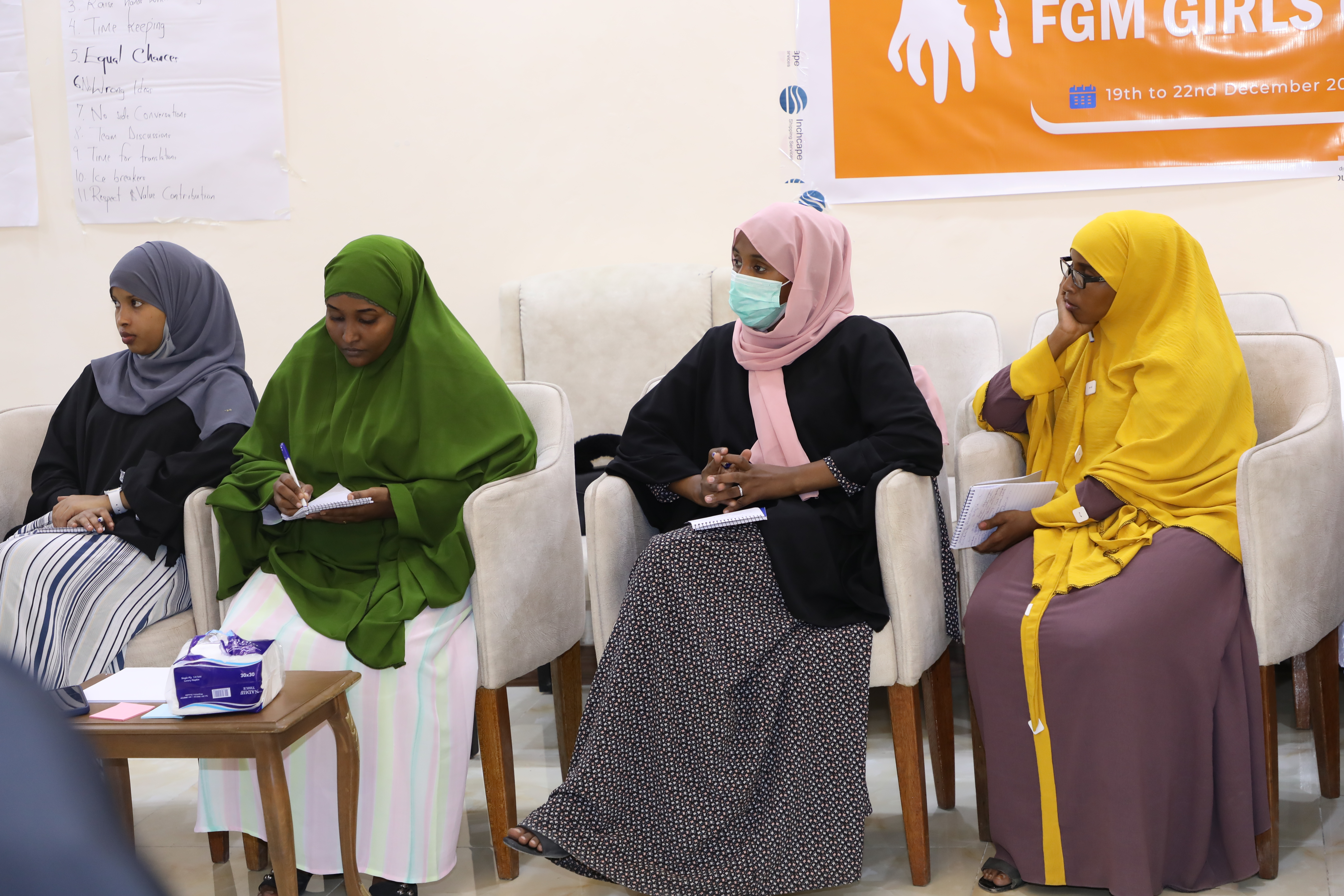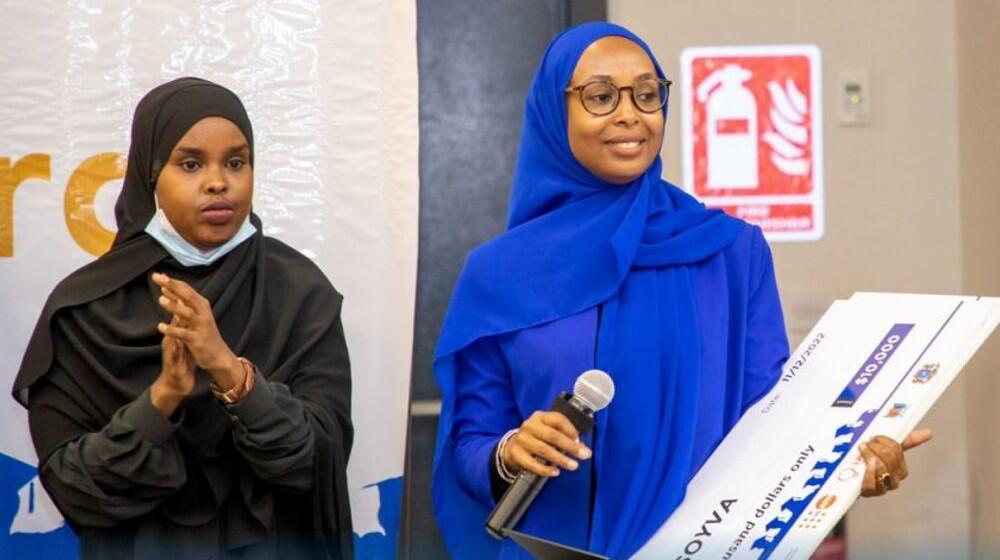Somalia’s first-ever UNFPA FGM Innovation Challenge has given girls the know-how, tools and funds to fight female genital mutilation (FGM) with creative ideas, initiatives and campaigns.
Nearly 99 per cent of women and girls in Somalia aged 15 to 49 have suffered the savage practice of FGM. Most are cut by traditional practitioners between the ages of five and nine.
16 girls groups applied for the landmark Innovation Challenge in 2021 that aimed to empower women and girls to boost action to end FGM, and was run with the Mogadishu-based iRise Hub.
Five groups were selected to join a bootcamp, where experts assisted them to develop and scale their solutions for long-term impact.
Winners included ‘My Princess,’ an initiative that works to inform communities about the risks and perils of FGM, especially grandmothers, who wield significant influence in families and communities, and a community-based campaign by a group of mothers and business owners.
The ‘My Princess’ team includes doctors and social activists that have seen the harm and danger of FGM up close, and the initiative uses innovative communications tools to reach their audiences where they are, including through radio, television, newspapers and social media.

The winners received small grants and hands-on, expert incubation support for 3 months.
"The innovation bootcamp gave me crucial knowledge about FGM and its root causes. Through gaining deeper insights into my community and actively participating in FGM awareness seminars, my project emerged as a tool for public awareness and hopefully for positive transformation in my community," says Mushtaq Muhudin Adan of the My Princess team.
Runners-up included the ‘Hope’ initiative, which aims to bring religious leaders, medical doctors, academics together for anti-FGM campaigns, and the the ‘SAFDI initiative,’ which targets women and girls living with disabilities and internally displaced people, letting them know about the risks of FGM and their rights, including laws and regulations on FGM, the International Convention on the Rights of People with Disabilities, and support services for survivors.
“With a young, vibrant and growing population, Somalia is brimming with talent, drive and energy. By empowering women and girls and harnessing their commitment creativity to boost reproductive health, rights and choices, we can help end the scourge of FGM, and build a better future for everyone,” says Niyi Ojuolape, UNFPA Representative in Somalia.
Enduring impact
The FGM Innovation Challenge has left a lasting impact on the participants and their communities, instilling a bold and shared determination to end FGM in that is backed with confidence, knowledge and skills.
Participant Layla Cali Mahamed now leads efforts to educate her community on the dangers of FGM, and to challenge the beliefs and norms that underpin it through the Union of Girls’ Creative Small Businesses.
"As a wife of an Imam, I work closely with my husband in our community to create awareness about the harms of FGM. I use the training I received from the innovation bootcamp to practice empathy and really listen to the issues affecting our community.”


